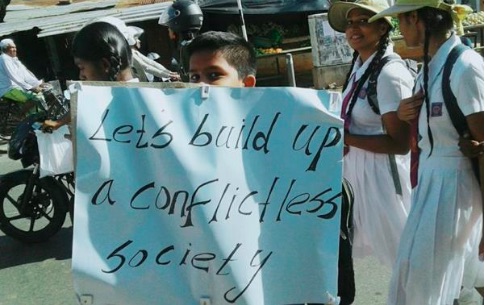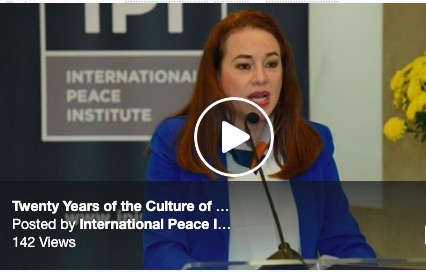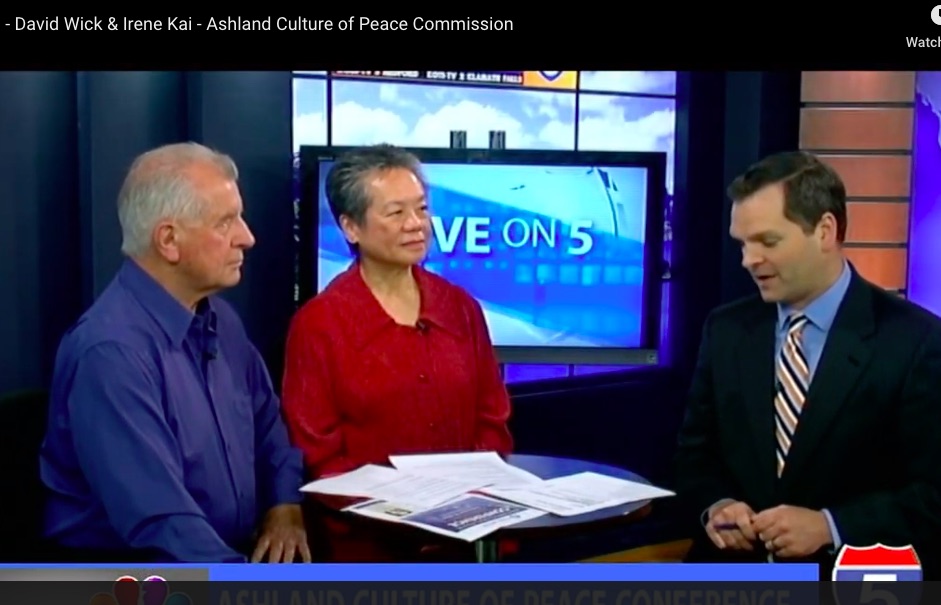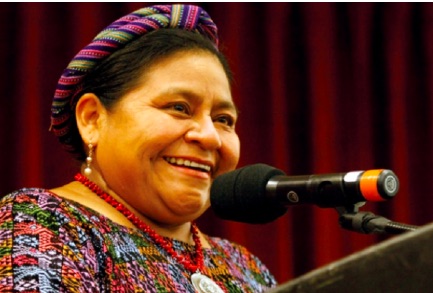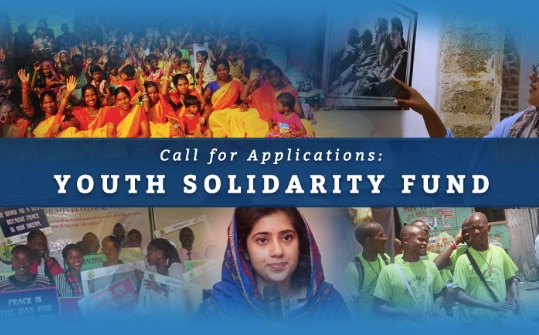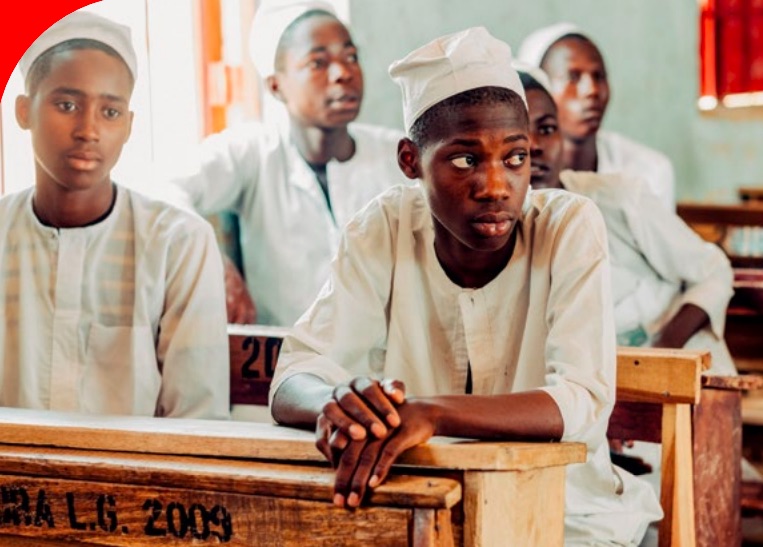. .DISARMAMENT & SECURITY. .
An article from Pressenza (translation by CPNN)
North America
United States
A tribute to ML King was given in Helen Park. The core team will go through New York and San Francisco. A visit to the United Nations is planned for a possible reception by the Secretary General. The presentation of the documentary “The Beginning of the End of Nuclear Weapons”. Through the Economic Commission for Latin America and the Caribbean, a line of work for collaboration and convergence was opened under the program 2030 of the United Nations. Contacts with the United Nations Secretary-General on the theme of the refoundation of the United Nations and possible macro-consultations on the subject at the March.

Canada
Canada participated in the march for Earth Day with the message “Non-violence is ecological: without war, there are no dirty weapons”. A press release is being prepared to request spaces for the invitation to organize activities for the passage of the march. On Saturday, 27/4 we attended the Spring of the Alternatives event to find contacts.
Mexico
The World March is invited to participate in the Nobel Peace Summit to be held in Merida on 17 and 23 September 2019. During the visit of the core team, there will be an event at the border with the United States and a tribute to the Treaty of Tlatelolco.
Central America
Guatemala
Alliances have been formed between individuals and organizations to strengthen the group of promoters. Among these, different sectors are represented: Civil society organizations, DiverArte, Organizations related to community communication, Student organizations, National University: students of the University of San Carlos de Guatemala, Municipalities: Municipality of Mixco
Honduras
Formation of the school 60 which will lead to the construction of the symbol of peace. It will be realized by the children of the schools located in the border zones of Honduras and Guatemala, at the reception of the March. The association of medical students of the National University UNAH and two private universities organizes the accompaniment of the March during its tour in Central America. The municipalities of Omoa and San Pedro Sula, decide to participate in the March with a massive mobilization of the population. Conducting three simultaneous conferences at San Pedro Sula Universities on topics related to world peace.
Cuba
Contacts are ongoing with some Cuban organizations.
El Salvador
Activities will be launched from Andrés Bello University. Probably in several cities of the country: San Salvador, San Miguel, Chalatenango, etc.
Costa Rica
We presented the campaign of the global plan of action for non-violence at educational centers 11 – 22, July. The teacher training plan begins the third week of July. Meetings with government authorities, the municipality of San José and organizations to propose activities on the theme of non-violence. Meetings every two weeks on Wednesdays at CAP from 5p.m. Celebration with artistic activities, human symbols of the International Day of Peace 21 / 9. Celebration of the day of non-violence 2/10 and departure of the March. Participation in the labor day march, distribution of flyers and transport of the March cover. Declaration of Cultural Interest of the March by the Government of Costa Rica. During the March, 27 and 28 in November are expected to participate in the International Forum on “The Role of the Armies in the 21st Century”. Activities with 1000 children on the esplanade of the Children’s Museum. Concert for peace in the park of democracy. Realization of human symbols at the passage of the March and some cultural reception events.
Panama
Last year, a forum was held at the Inter-American University. Between the end of September and the beginning of October 2019, we will organize a forum at a local university (location, date and time to be confirmed). As part of the second Global March for Peace and Non-Violence, we invite stakeholders to participate in the forum “Culture of Peace, Non-Violence, Respect for Children and Nature for a Better Panama” . They can, in this environment, share information they deem relevant on actions, contributions and projects in this regard.
South America
Colombia
In Bogotá: Work with the 40 schools that supported us during the South American march. We will hold workshops on active nonviolence, murals, drawings, flag raising, stories and writings, symbols of peace in the area and parades. The symbol of peace will be held in the Plaza de Bolívar, inviting 5000 people. Realization of a great concert for peace and non-violence. In Barrancabermeja: There will be a conference in Unipaz and SENA. A walk through the city to gather 2000 people. Contacts will be established with the human rights entities we worked with during March. We will close with a great symbol of peace at Kolibri Park. In Medellin: Carnival of culture, conferences in a university on peace and non-violence. Contact government entities responsible for human rights and related organizations. In other cities of Colombia: (Cali-Popayan-Pasto-Cartagena-Tunia-Cucuta-Bucaramanga-Ipiales-Armenia-Neiva). Peace marches and symbols will take place. Contact with schools. Discussions on non-violence in universities and institutes.
(continued in right column)
(Click here for a French version of this article or here for a Spanish version.)
Question for this article:
The World March for Peace and Nonviolence: What is its history and its effects?
How can we be sure to get news about peace demonstrations?
(continued from left column)
Ecuador
In Guayaquil, letters were sent to universities for forums. National schools that verbally communicated their interest were contacted. Contacts have also been established in other cities such as Manta, Ámbato and Quitó. In Guayaquil: Activities are planned at the University of Guayaquil and Casa Grande University. Inter youth sports club championship. Some colleges and the municipality of Guayaquil. On the cover: Activities are planned for the passage of the 2ª March in coordination with the Pan-American Round Table and the University of Manta.
Venezuela
Appointments every Sunday with personal development work and organization of the March. A diptych has been developed, institutions contacted. We were interviewed on the radio. And,the March was advertised in the Sao Paulo Forum through the women’s sector. We continue to contact people and institutions that support the March There will be forums with videos to advertise it.
Brasil
In Sao Paulo – SP: Meetings for the dissemination of the March and the formation of a group of volunteers to participate in the organization and dissemination of the March in Sao Paulo. Production of explanatory material on how to organize the symbols of peace and other global activities in schools and universities. In Cubatão – SP: Meeting with the director of education to create human symbols in schools in the region. In July, 22 met the directors of 75 to make human symbols in various schools in the towns of the Santos coast. Presentation of the March on July 23, this time to the directors and coordinators of the first years (1º to 5º degree). There was a very good positive energy, we encourage schools to achieve the symbol of peace at the launch of the World March, during the week of non-violence from 2 to October 4. Participation in the March for culture of peace to be held in August In Caucaia – SP: Presentation of the March to representatives of different religious groups of the city. Participation in the March for the Culture of Peace, to be held in August by the Ministry of Sport and Culture of Cotia in collaboration with an interfaith commission. In Paraisópolis – MG: In August 29, we will have a meeting with all the schools of Paraisópolis to inform of the world March and propose activities. During the visit of the base team, an activity is planned with the children in the message room of the silo south of Minas Gerais. Em Salvador – BA: Trip to Bahia to broadcast the March, contact with Bom Fim Brothers in Salvador, Bahia, with the proposal to create a community of nonviolent resistance in the city. In Recife – PE: The meeting with the Ministry of Education of Jaboatão dos Guararapes took place in July 17. The 12th of August will be held as part of the training of the project on non-violence in schools with schools 30 of the metropolitan area of Recife. In Curitiba – PR: We are planning a visit to the Lula Libre camp. We are trying to organize a base team visit to Lula to deliver the book of the South American March for Peace and Nonviolence.
Peru
Prevention and anti-violence workshops with prospective teachers and mothers in schools in Comas District, Lima. Prevention and fight against violence among school teachers in the district of Cañete. We have promoters in every city. We are coordinating to promote the activities at each point. We have a central location in Lima, provided by the University Ricardo Palma.
Bolivia
In La Paz: Activities focused on the printing and delivery of invitation letters to secondary and primary schools in the Sopocachi region of La Paz. Since July, workshops for teachers and students from the same region have started. In Cochabamba: Activities carried out at the University Mayor of San Simón during the peace march in South America to 2018. In Santa Cruz: The Silo Study Center began with the dissemination of World March activities . Beginning of dissemination activities in July.
Chile
We are starting organizational meetings with new people to fit into the activities. We are planning a tour of all regions of Chile to promote the formation of grassroots groups. They will rely on the production of materials of all kinds to cover the actions. The idea is to integrate people to continue the March in future editions. Also in Chile, we will strengthen support for the NPT (Nuclear Weapons Treaty). Progress has already been made with parliamentarians, we will now expand our action to municipalities. Contact in Chile with the Mexican environment Alicia Bárcenas (ECLAC) who has access to the UN and the governments of the region. The organizer of WOMAD offered to collaborate with the March in Chile for the realization of a mega symbol of peace. At the Latin American Humanist Forum of 11, 12 and 13 in May, the March for America was discussed at the Teatro del Puente. We will have a discussion of the network of teams for the March at the Americas level in July 27.
Argentina
There are promoters in the 8 provinces : Salta, Jujuy, Tucumán, Cordoba, Mendoza, Rio Negro (El Bolsón), Bueno Aires (Tigre and Mar del Plata) and recently in the CABA (autonomous city of Bs. will be two main events in the country: Recognition of the mothers and grandmothers of the Plaza de Mayo as heroes of the nonviolent struggle. Tribute to Silo [Mario Luis Rodríguez Cobos] . In the process of organization In Buenos Aires: Dissemination activities in Parque Lezama, Buenos Aires Province and CABA. The rest is under development. In Cordoba: The team of promoters of the city was formed and organizational meetings were organized. The March has already been declared of educational interest by the province of Córdoba. The application for membership of other institutions to the municipality and the chamber of legislators was presented. The following have been programmed: Work in Schools, The Making of a Wall Campaign, The Screening of the Documentary “The End of Nuclear Weapons”, A musical musical festival among other actions. In Jujuy: A small action is planned for the delivery of the book of the South American March, to Miracle House. Draft to declare week 1 of October the week of non-violence of 2019. In Salta: The Community for the human development and members of the General Direction of the community organization of the municipality presented to the Human Rights Commission and the constitutional guarantees of the Council of deliberation the plan to declare the week 1 of October the week of the nonviolence of 2019 and the Place of the Peace and Non Violence is inaugurated. Make a calendar with activities (1 per month) of diffusion: Cinema debate on the beginning of the end of nuclear weapons, Marathon or bike ride, Human symbols, Closure with a cultural festival. In Mendoza: In July 19, there was a workshop meeting with social organizations adhering to the 2MM. At the 02 of October, there will be marches of Las Heras in Centro de Mendoza. Symbols of peace of the students of the school of Mendoza. In Punta de Vacas: Celebration of the 10th anniversary of the First March on 02/01/2020.
The Americas prepare for the world march
Despite economic, social and political difficulties, each in his own way should try to participate in the project. If this is the case, you can do this by facilitating contacts of individuals, personalities or NGOs in the above-mentioned countries or in other countries through this e-mail address. .
